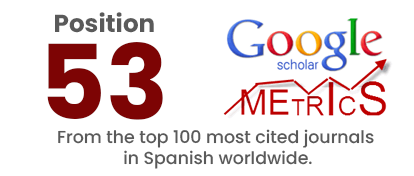Uncertainty of the legal reality and sense of justice: theoretical and methodological aspects (on the experience of research status of public law)
DOI:
https://doi.org/10.36097/rsan.v1i30.911Keywords:
right, uncertainty in the law, uncertainty of the legal reality, legal certainty, sense of justiceAbstract
This article presents the results of a theoretical-legal analysis of uncertainty of the legal reality and legal consciousness as special subjects of (new) status, and ordinary citizens. Meaning of "uncertainty of the legal reality” is refined on the basis of a number of attitudes of social philosophy, including: one form of Government, social uncertainty, dependence on the manifestations of activity subject of social communication-person (citizen); social givens, which does not allow to focus on the sustainable social rules and practices, therefore, the decision always involves risk and accompanies stress for actors. Some of the justified theoretical generalizations include: uncertainty of the legal reality, in principle, not to be overcome, since the State of awareness is a deterministic public entity status (creator of law regarded); the legal reality is possible only to minimize the uncertainty. This task assumes that you have a solid scientific basis, which as the organic segment, comprises deeply and comprehensively developed doctrine of Pravosoznanii based on the integral understanding of the right type.
Downloads
References
Ershov V.V. (2017). Analysis of integrative legal thinking from general scientific positions. Integrative legal understanding. Scientific School of the Russian University of Justice. M .: RSUP.
Kabyshev V.T. (2011). Psychology of power: the mechanism of realization and responsibility Public authority: problems of realization and responsibility. Collective monograph. ed. N.I. Matuzov and O.I. Tsibulevskoy. Saratov: Saratov State Academy of Law.
Kalandarishvili Z.N. (2009). Legal awareness as a key element of the legal culture. Actual problems of modern legal science and practice. Scholarly notes. Volume 12. St. Petersburg, SPb IWESEP.
Krupenya E.M. (2015). Topical issues of scientific strategy in the study of status public law. Methodological problems of modern legal science. Collective monograph on the results of the round table number 5 at the Moscow Institute of Public Administration and Law. ed. ed. YES. Pashentseva and A.G. Chernyavsky. M .: Rusayns.
Leontiev A.A. (2011). The essence of the mental and the construction of psychological knowledge. Cultural-historical psychology. № 1.
Lukashev E.A. (1973). Socialist sense of justice and the rule of law. M .: Legal. Lit.
Malakhov V.P. (2015). Right in the context of forms of social consciousness. M .: UNITI.
Maltsev G.V. (2007). Social foundations of law. M .: Norma.
Omarova, UA, Chupanova, A.Ch., Rashidkhanova, DK, (2007). Basic Approaches to Law Understanding: A Methodological Base for Studying Regional Peculiarities of Legal Awareness (Using the Example of the Youth of the Republic of Dagestan) // Problems of Understanding Law. The right of Russia: new approaches. Issue 3. Saratov: Scientific book.
Petrazhitsky L.I. (2000). The theory of law and the state in connection with the theory of morality. St. Petersburg: Lan.
Pokrovsky I.A. (1998). main problems of civil law. M.
Sinenko V.S. (2013). to the question of the content of the principle of legal certainty. Scientific statements Bel GU. Series: Philosophy. Sociology. Right. № 8 (151). Release 24.
Syryh V.M. (2000). The logical foundations of the general theory of law. In 2 tons. T. 1: Elemental composition. M .: Legal House "Justicinform".
Timoshina E.V. (2014). Classical and post-classical legal thinking as styles of thinking. Communicative theory of law and contemporary problems of jurisprudence. A collective monograph. ed. Mv Antonova, I.L. Chestnova in 2 volumes. St. Petersburg: ALEF-PRESS Publishing House, V.1. Pp. 63-65.
Chernigovskaya T.V. (2017). The Cheshire Smile of the Schrodinger Cat: Language and Consciousness. M.
Kozhanova, M. B., Svechnikova, N. V., Akhmetzyanova, G. N., Kondrashova, E. N., Maksimova, N. L., & Zakharova, Z. A. (2017). Psycho-Pedagogical Conditions of Professional Culture Development of a University Professor. International Electronic Journal of Mathematics Education, 12(1), 15-23.
Chestnov I.L. (2018). Post-classical methodology of research of law as an answer to the crisis of jurisprudence. Crisis of law: history and modernity: monograph. ed. ed. V.V. Dinesenko, M.A. Belyaev, E.N. Tonkova. St. Petersburg.
Chestnov, I. L. (2012). Postklassicheskaya teoriyaprava [Postclassical Theory of Law]. Saint Petersburg: Izdatel'skii dom" Alef-Press.
Dave Cowan. (2004). Legal Consciousness: Some Observations. The Modern Law Review. Volume 67.Issue 6. pp. 928-958.
Elizabeth A. Hoffmann. (2003). Legal Consciousness and Dispute Resolution: Different Disputing Behavior at Two Similar Taxicab Companies. Law and Social Inquiry. Volume 28. Issue 3. pp. 691-716.
Laura Beth Nielsen. (2000). Situating Legal Consciousness: Experiences and Attitudes of the Citizens on Law and Street. Law & Society Review. Vol. 34, No. 4. pp. 1055-1090.


















